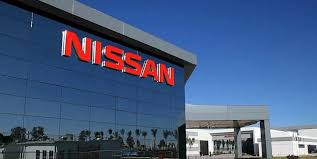
Nissan Partners with UK Startup Wayve to Test Advanced Assisted Driving System
Tokyo, Japan (September 22, 2025)
Nissan Motor Co. has commenced testing a new driver-assistance system developed in collaboration with British startup Wayve. The trials, conducted in Tokyo, utilize Nissan’s Ariya electric vehicles equipped with advanced sensors, including 11 cameras, five radars, and one lidar sensor. This system offers Level 2 autonomy, requiring drivers to remain alert and ready to take control at any moment.
The primary focus of this technology is to enhance vehicle performance in complex urban environments, addressing challenges such as pedestrians, cyclists, and unpredictable traffic conditions.
Unlike traditional autonomous systems that rely on detailed digital maps, Wayve’s approach utilizes machine learning algorithms to process real-time data from the vehicle’s sensors, enabling the system to learn and adapt to dynamic driving scenarios.
This method aims to improve the vehicle’s decision-making capabilities in environments with high pedestrian activity and frequent obstacles.
The company raised over $1 billion last year from investors including SoftBank and Nvidia, while Uber made a separate investment in 2024, and has recently established a development center in Japan to support this initiative. The company has also expanded its testing and development efforts to other markets, including Germany and the United States.
In a significant move, Nvidia has signed a letter of intent for a potential $500 million investment in Wayve’s upcoming funding round, underscoring the growing confidence in the startup’s innovative approach to autonomous driving technology.
This collaboration marks a significant step in Nissan’s efforts to advance its ProPilot series of driver-assistance technologies, which began in 2016 and received an upgrade in 2019 for highway driving applications.
The specific models that will feature this new system have not yet been disclosed. Nissan plans to introduce this system in Japan during the 2027 fiscal year.
While the integration of machine learning-based systems offers promising advancements in autonomous driving, it also presents challenges. The reliance on real-time data processing necessitates robust sensor calibration and data validation to ensure system reliability and safety. Additionally, the adaptability of the system to diverse driving conditions and environments remains a critical factor in its deployment.
Nissan’s collaboration with Wayve represents a forward-thinking approach to enhancing urban driving experiences through advanced assisted driving technologies.
As the automotive industry continues to evolve, partnerships like these highlight the potential for innovation in addressing the complexities of urban mobility. The upcoming trials and subsequent developments will be closely monitored to assess the effectiveness and safety of these advanced driver-assistance systems in real-world scenarios.